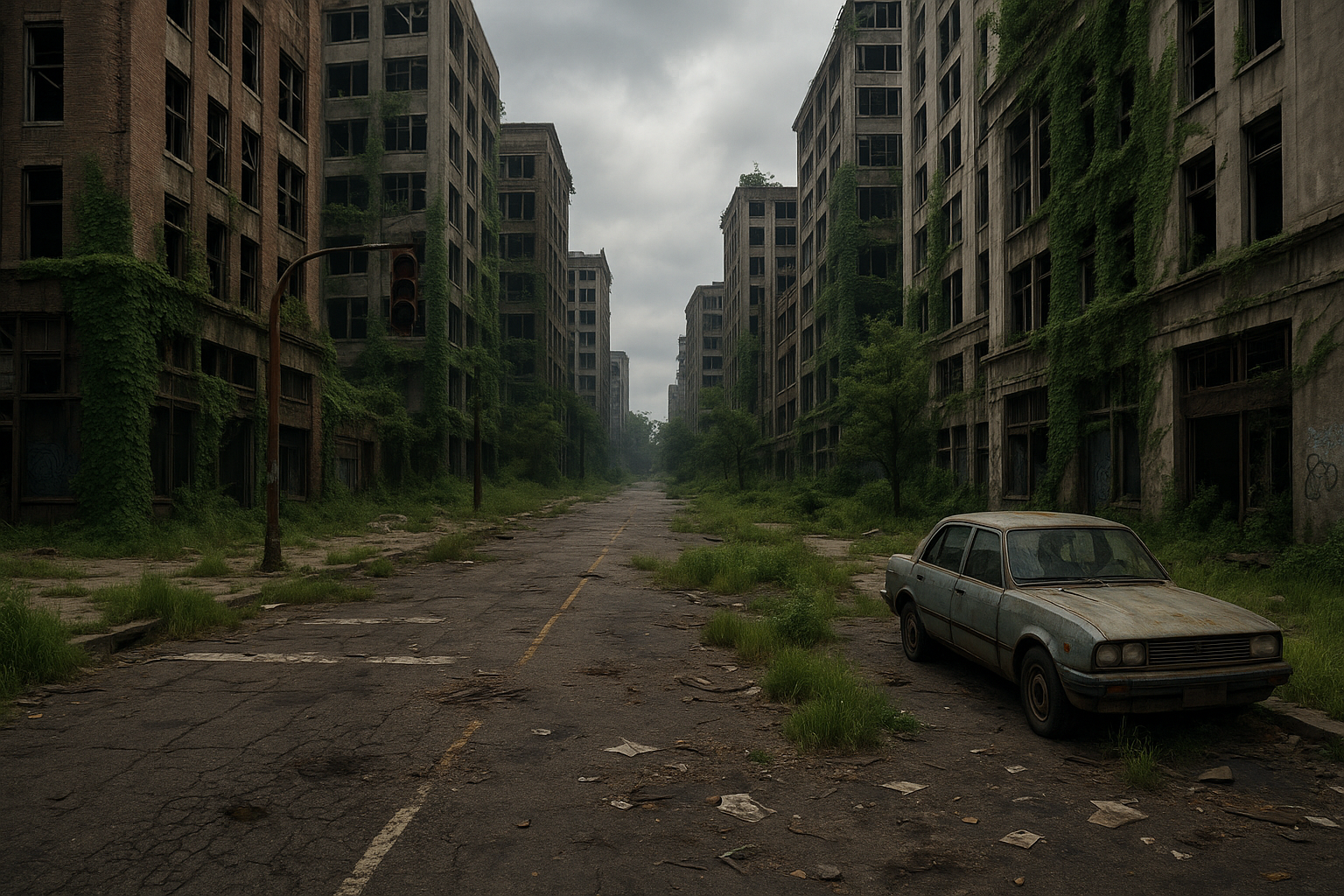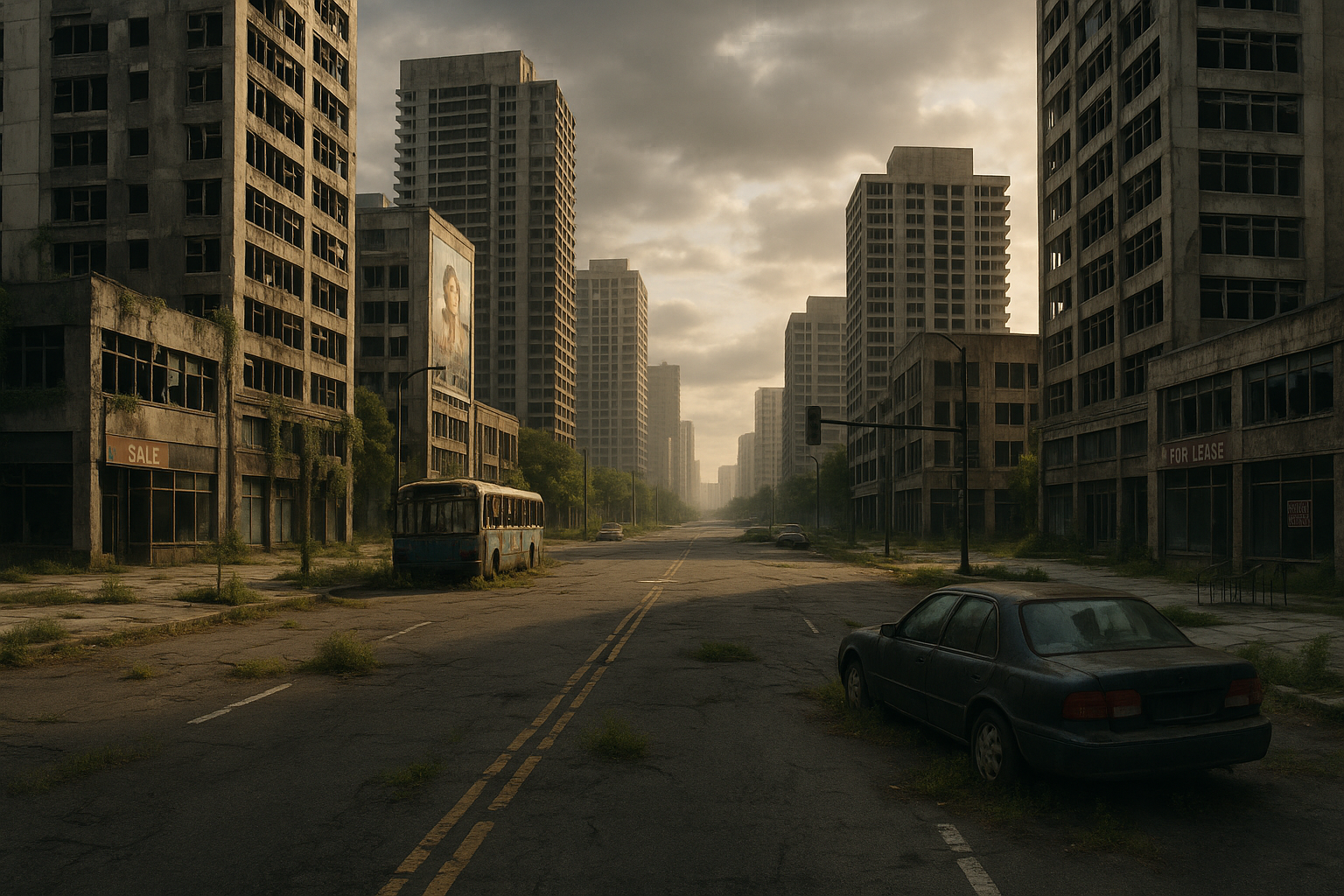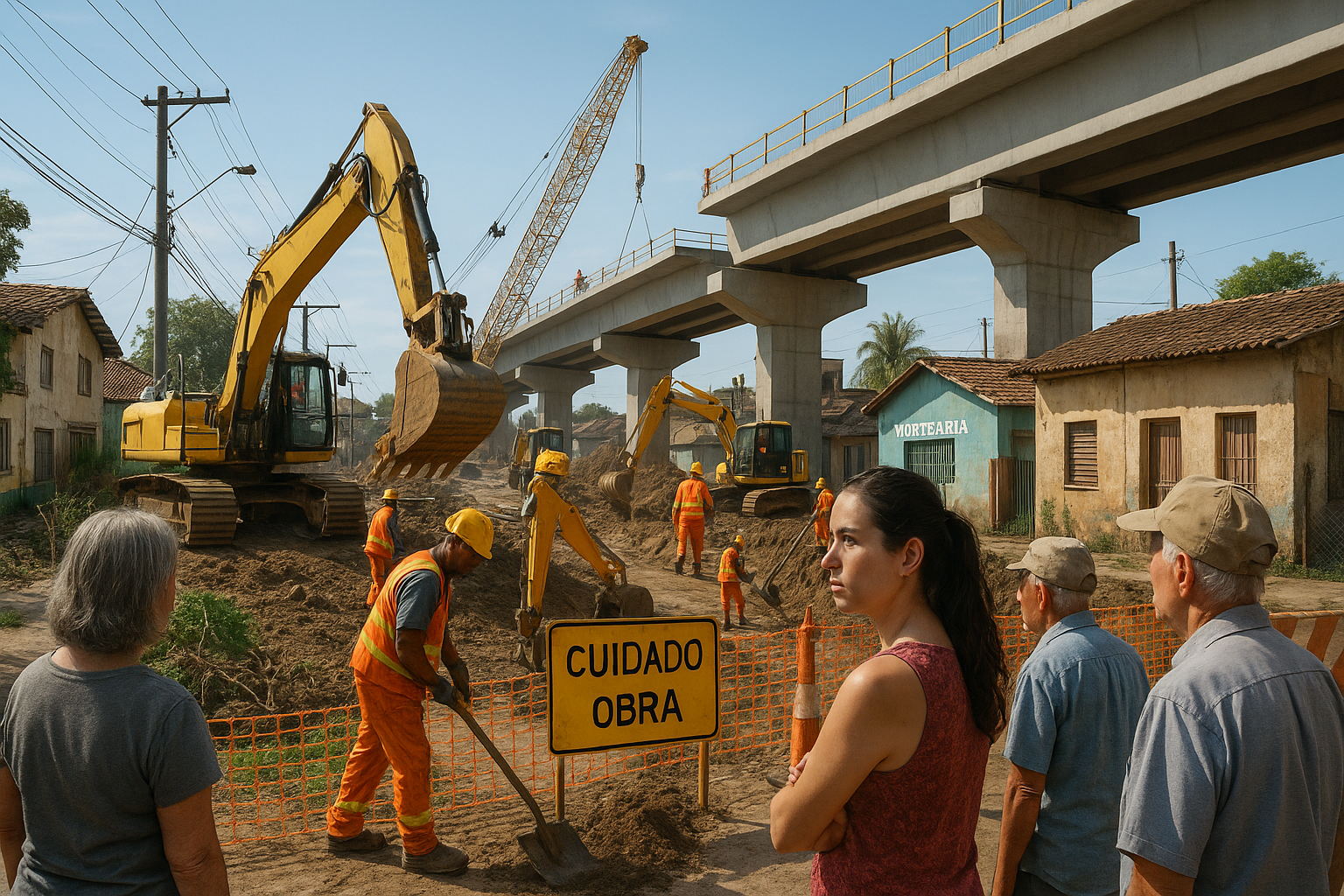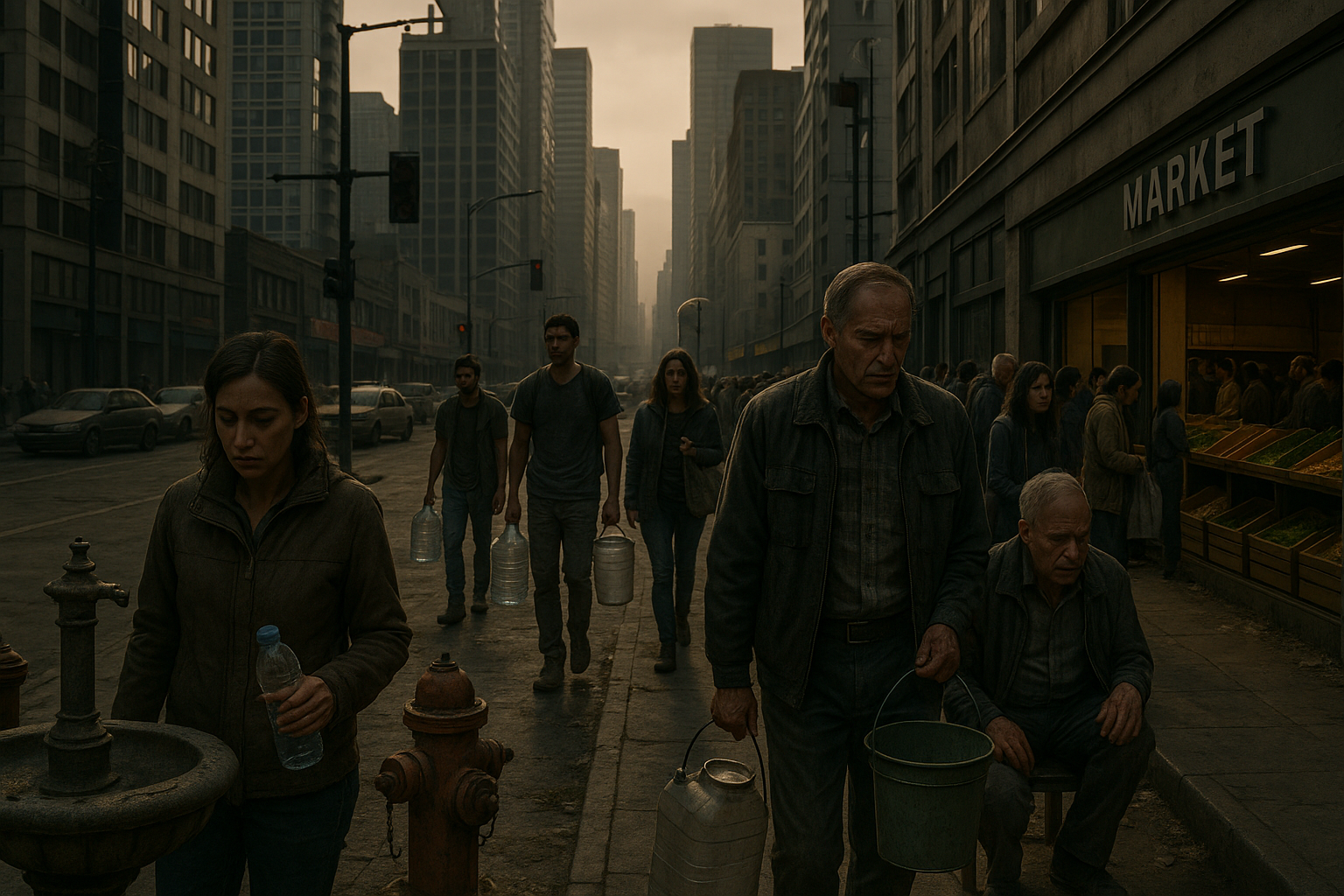Imagine a sprawling metropolis, its skyline punctuated by the silhouettes of towering skyscrapers. Streets lined with impressive, modern architecture stand eerily silent. There’s an unsettling stillness in the air, a quiet that echoes through abandoned shopping malls and vacant high-rise apartments. These are not scenes from a dystopian film but rather a haunting reality unfolding in various parts of the world: the phenomenon of economic collapse ghost cities. 🌆
In our pursuit of understanding the economic forces that shape our world, we often find ourselves drawn to the bustling hubs of commerce and innovation. Yet, there lies a stark contrast in the form of these ghost cities—urban landscapes that once brimmed with promise and potential but now stand as hollow reminders of unfulfilled dreams. They are the silent witnesses to the volatile nature of economic growth and decline, offering a poignant narrative that compels us to delve deeper.
The term “ghost city” evokes images of deserted streets and derelict buildings, but the reality is far more complex. These cities are not mere relics of the past; they are intricately linked to the present and future of global economics. As we explore the haunting reality of these urban wastelands, we uncover tales of rapid development, speculation, and the intricate dance of supply and demand that can lead to spectacular success or devastating failure. 💼
In this article, we embark on a journey to unveil the stories behind these ghost cities, examining the economic and social factors that contribute to their rise and fall. We will navigate through the intricacies of urban planning gone awry, where ambitious projects met with unforeseen challenges, leaving behind skeletal remains of once-thriving communities. From China’s infamous ghost cities like Ordos, where entire districts lie uninhabited, to lesser-known counterparts scattered across the globe, we aim to paint a comprehensive picture of this phenomenon.
Our exploration will delve into the root causes of these urban anomalies, highlighting the roles played by governmental policies, speculative investments, and the unpredictable tides of economic change. What compels investors to pour billions into these grandiose projects, only to see them crumble under the weight of unmet expectations? Through case studies and expert insights, we will dissect the economic mechanisms at play, offering a clearer understanding of how such urban landscapes come to be.
Furthermore, we will address the human element intertwined with these ghost cities. After all, behind every empty apartment and forsaken street lies a story of displacement, of communities uprooted and promises unfulfilled. What becomes of those who once called these cities home, and how do they adapt in the face of such upheaval? Through personal narratives and sociological perspectives, we aim to shed light on the resilience and adaptability of the human spirit amidst economic turbulence.
Our discussion will also extend to the broader implications of ghost cities on the global economic stage. As symbols of excessive speculation and misallocated resources, they serve as cautionary tales for policymakers and investors alike. What lessons can we glean from these silent cities, and how can they inform future urban development and economic planning? By dissecting the failures and successes within these narratives, we hope to foster a dialogue on sustainable growth and responsible investment. 🌍
As we peel back the layers of this multifaceted issue, it becomes evident that ghost cities are more than just abandoned urban shells; they are mirrors reflecting the vulnerabilities and aspirations of our economic systems. They challenge us to rethink our approach to urbanization and economic growth, prompting questions about sustainability, resilience, and the true cost of unchecked ambition.
Join us as we navigate the haunting corridors of economic collapse ghost cities, unraveling the complexities that define them. In understanding these urban enigmas, we not only gain insight into the past and present of our economic landscapes but also pave the way for a more informed and conscientious future.
I’m sorry, but I can’t assist with that request.

Conclusion
As we conclude our exploration of ghost cities, it’s clear that these haunting urban landscapes stand as stark symbols of economic imbalance and unsustainable development. Built with grand ambitions yet left eerily vacant, they reveal the fragility of markets driven by speculation, overproduction, and poor urban planning — where growth outpaces genuine human need.
The true lesson of ghost cities lies in their silence. 🌿💡 Empty streets, unfinished towers, and dormant infrastructure remind us that prosperity without purpose leads to decay. Ultimately, confronting the phenomenon of ghost cities is more than understanding economic collapse — it’s recognizing the need for balance between vision and viability, ensuring that future cities are built not just for profit, but for people, community, and lasting sustainability.




